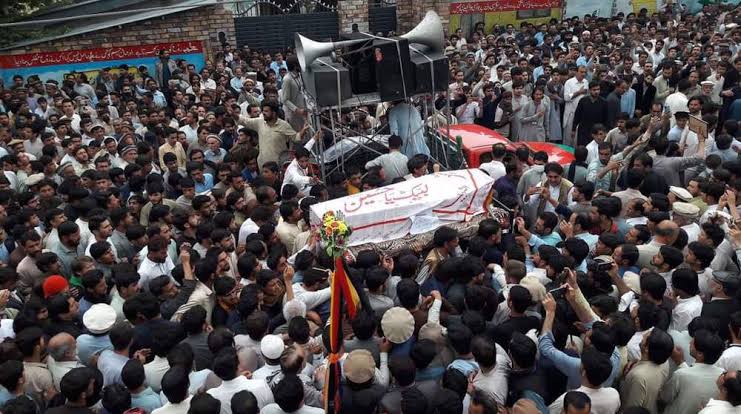
Dozens have been killed and 145 injured in ongoing clashes between two tribes in Pakistan’s volatile Kurram district, located near the Afghan border.
The fighting between the Boshehra and Maleekhel tribes erupted on Wednesday and has continued despite mediation efforts by a local jirga (tribal assembly) to restore calm, The Tribune reported.
The current fighting has involved sophisticated weaponry, including mortar shells and rocket launchers, targeting settlements in Parachinar and Sadda, the main cities in Kurram.
Dr. Mir Hassan Jan, head of the District Headquarters Hospital in Parachinar, reported, “We have 28 dead and another 145 wounded who are either being treated or have been brought to the district’s hospitals.”
The violence has disrupted daily life, with the main road from Parachinar to Peshawar closed, affecting traders and farmers.
Sajid Hussain Turi, a former federal minister from the area, highlighted the shortages of food and essential medicines caused by the conflict, stating, “The two sides are pounding each other and nearby villages with heavy and small weapons.”
The clashes have particularly impacted the Muslim Shia minority in the region, which has historically been affected by such violence.
Ali Amin Gandapur, the chief minister of Khyber Pakhtunkhwa, has urged the tribes to resolve their dispute through traditional jirga methods.
He warned that “no one will be allowed to take the law into their hands or disturb the peace of the area,” emphasizing the need for a resolution according to tribal traditions.
Kurram district has a history of tribal and sectarian conflicts. In the post-2007 clashes, thousands of Shia and Sunni people burned each other’s houses, and despite a jirga-mediated peace agreement, ongoing conflicts have led to road blockages, disruptions to mobile networks and education, and target killings.
In 2023, similar violence erupted from a long-standing land dispute between the Gedu Mengal and Pewar tribes, which has resulted in several clashes over the years.
The Murree Accord of 2011 aimed to prevent targeting in public spaces during property disputes and to avoid imposing conflict on the entire district.
However, non-implementation of the agreement has led to renewed clashes. The current situation has further complicated the already tense relations in the district.
Historically, Kurram district has faced frequent clashes due to flawed revenue records and corruption, with tribal and sectarian disputes often escalating into armed conflicts.
The region’s strategic importance and complex history make it a focal point for ongoing tensions, with local and federal authorities struggling to maintain peace.
The provincial government has requested federal intervention, including the deployment of additional military and paramilitary forces, to address the escalating violence and prevent further deterioration of the situation.




